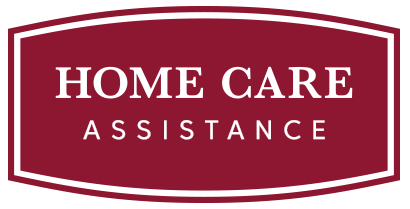How to Address Sundowning in Elderly People

Seniors with dementia often exhibit a behavior referred to as sundowning, which increases agitation and wandering. You can use these tips to ease your aging loved one’s sundowning symptoms so you both enjoy your time together.
Track Changes in Behavior
Most seniors with Alzheimer’s have certain times during each day when they’re at their best, and you should also know that sundowning can occur at any point during the day or night. Start by noticing when your loved one’s challenging behaviors tend to increase. Once you identify a pattern, you can take extra measures during those times to keep him or her calm.
If your loved one’s sundowning is due to dementia or Alzheimer’s, he or she may need a higher level of care than you can provide. Caring for a senior with dementia can be challenging for family caregivers. Luckily, there is dementia care Dallas families can rely on. Professional dementia caregivers help seniors with dementia stay safe and comfortable at home by preventing wandering, providing cognitive stimulation, and assisting with household chores.
Increase Exposure to Light
Although no one is certain why sundowning occurs, one theory is that it has something to do with disruptions in circadian rhythms. You can keep your loved one’s body clock on target by making sure he or she gets enough sunlight during the day. If necessary, consider using light therapy for times when your loved one is indoors or unable to go outside. Even adding more normal lighting to your loved one’s living space may boost his or her mood.
Make Dietary Adjustments
Seniors who eat large meals may experience more agitation if they’re uncomfortable or experiencing stomach pain. Your loved one’s symptoms are also more likely to escalate if he or she consumes alcohol or caffeine. Sensitive seniors may also have behavioral changes due to other ingredients such as dyes in their food. Experiment with serving smaller meals or omitting caffeine to see if any of these strategies help your loved one feel better in the evenings.
It may be challenging to create nutritious meal plans that suit your loved one’s needs, and a professional caregiver can be a great source of support. Not every senior has the same care needs, which means they don’t all need the same type of elderly care. Dallas families can rely on Home Care Assistance to provide individualized care plans to meet their elderly loved ones’ unique care needs. Our holistic Balanced Care Method was designed to help seniors focus on healthy lifestyle habits such as eating nutritious foods, exercising regularly, and maintaining strong social ties, and our Cognitive Therapeutics Method offers mentally stimulating activities that can boost cognitive health and delay the onset of dementia.
Establish Soothing Routines
If you know your loved one is going to be agitated in the evenings, do your best to avoid stirring him or her up. For instance, you may need to turn off the television if your loved one gets confused trying to follow the plot of a show or the news makes him or her worry. Instead, plan activities that calm your loved one down, such as listening to a favorite song or enjoying a hand massage. If you do these soothing things each evening, your loved one will eventually recognize it as a time to unwind.
Look for a Fixable Cause
You might not be able to change your loved one’s diagnosis, but there are still many things you can do to ease his or her agitation. For instance, your loved one may try to wander when hungry, and having a caregiver available to make a snack is all it takes to keep him or her indoors. Alternatively, your loved one may get agitated if he or she is cold or bored before going to sleep, and all that’s needed is just some additional comfort such as a blanket. Identifying the causes you can fix may help you address your loved one’s symptoms more effectively.
Sundowning can be one of the most challenging aspects of living with dementia or Alzheimer’s disease. Seniors can face a variety of challenges as they age, many of which can be mitigated with the help of professional in-home caregivers who provide high-quality home care. Dallas families trust Home Care Assistance to help their elderly loved ones age in place safely and comfortably. Contact one of our experienced Care Managers today at (214) 363-3400 to learn more about our reliable in-home care services.

